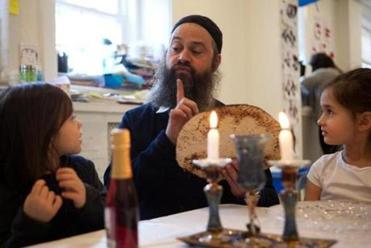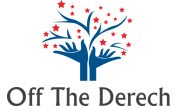Category: Blog
-

Seder Questions
By C. It’s that time of the year again. It’s nearly midnight, the table is laden with silver, the family is gathered around expectantly, and everyone is hungry. My father, resplendent in his kittel and shtreimel, claps his hands and intones “Kan haben shoiel”, as he calls upon my youngest brother to begin the mah…
-

Celebrating Freedom
In just the past couple years, I’ve had so many moments where I would let off a sigh of relief and realize how great it feels to be free. I was helping put on a Pesach Seder at a Conservative temple when the first night fell out on a Friday night, and we needed hot…
-

Tell Us About Your Resources
On the Off The Derech website, you will find links to many resources, such as support organizations, meetup groups, Facebook groups, etc. Please let us know what you think should be added by leaving us a comment. Thanks! Your Off The Derech webmasters
-
Chabad Young Adults Break from Cult Mentality
Video: Chabad-Lubavitch Young Adults Break from Repressive Cult Mentality
-
My Own Derech
Living in the heart of a major frum community, I thought there was no one like me. I either had to decide to remain in the community and keep going to shul even though I didn’t believe in Hashem, or I had to go off the derech and completely let go of all the things…
-

Connection
For me, well, I didn’t even know that being “off the derech” was a thing. Of course, in the back of my mind, I knew people left orthodoxy, but I didn’t know that people talked about it, not in the way I needed to talk about it. I thought maybe they left and disappeared, somehow…
-

Not Alone
Being the token orthodox Jew in a small rural town was lonely enough. We had moved here because it was cheaper and closer to my husband’s job. I made a place for myself as a sunday school teacher and organized rosh chodesh events for the women who were eager to learn more of what I…
-

Documentary on BBC about Stamford Hill OTD People
http://www.bbc.co.uk/programmes/p04n1x7p
-

Skepticism
I think skepticism is part of my nature. I have always been one to question and probe, but until my last year in high school, I hadn’t thought to question my belief in god or the practice of my religion. During that year we had a weekly “mishmar” class that dealt with Jewish philosophy and…

